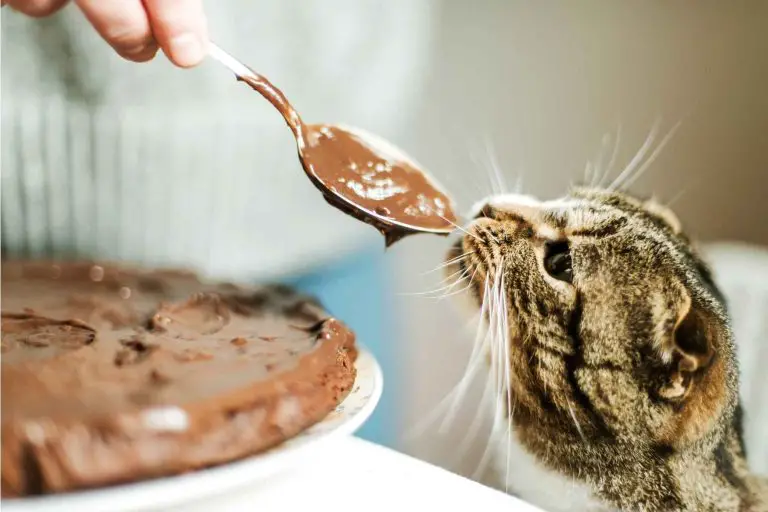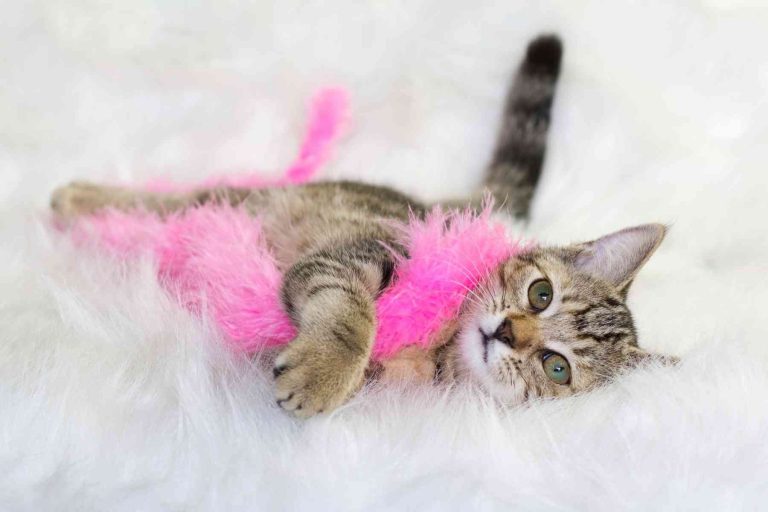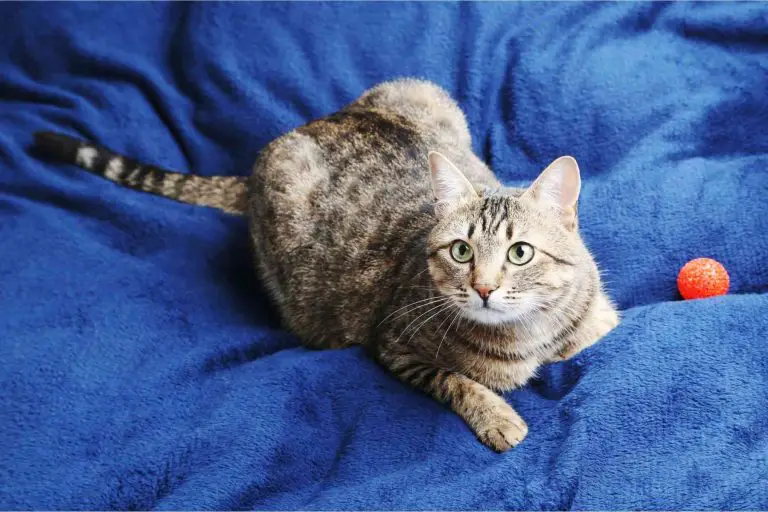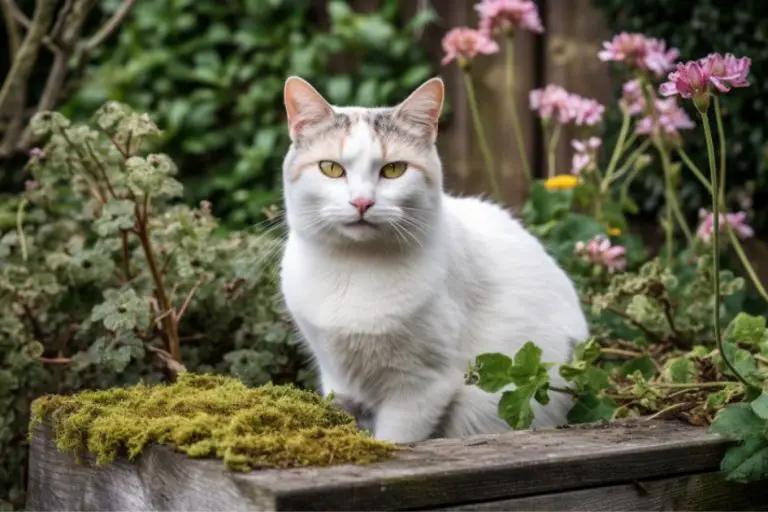Can Cats Have Playdates?
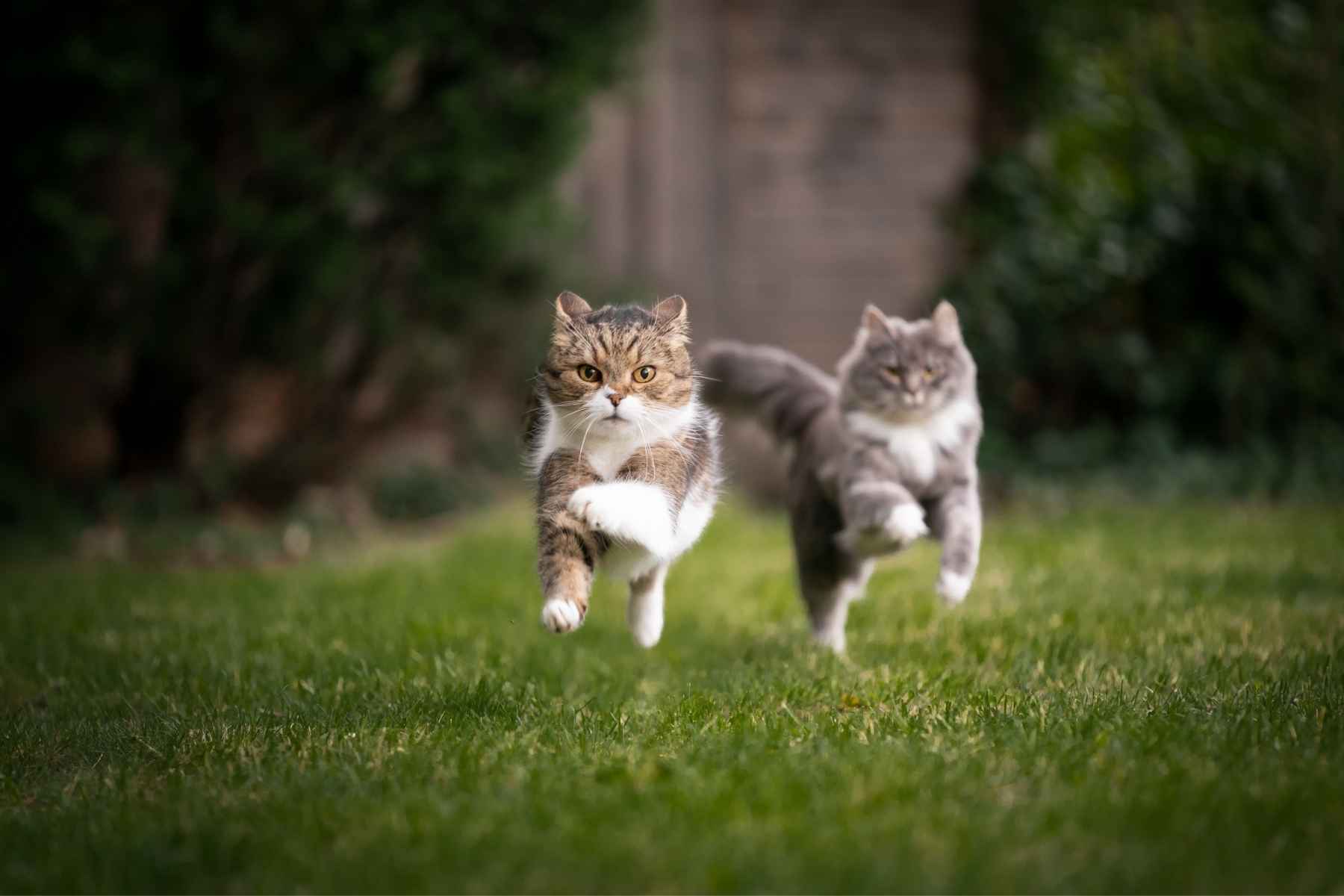
Cats have a reputation for being solitary creatures. But as it turns out, our feline friends like company more than you might realize.
Generally, most cats can have enjoyable and healthy playdates. In addition to benefiting their overall well-being, playdates teach them how to socialize with other felines. However, some cats are better off alone due to their personalities or behavioral issues.
Below, this article explains the dos and don’ts of cat meet-ups. That way, you can make sure your kitty’s get-together goes off without a hitch.
Are Playdates Good for Cats?
Playdates can be an excellent source of enrichment (and enjoyment) for your cat.
Interacting with other felines gives your pet a chance to develop crucial social skills. Not to mention that exercise is always a plus.
Here are some of the positive benefits of cat playdates:
- Avoiding obesity: Living indoors significantly increases your pet’s risk of obesity. Thankfully, playdates can combat this problem by giving your feline some fun-filled exercise.
- Socialization: Despite their reputation, cats are social creatures. Playdates allow them to learn how to interact with one another. And over time, socialization can even lead to your kitty becoming more friendly.
- Reducing stress: Letting your feline get some energy out can do wonders for reducing their anxiety. However, meeting a new cat may also have the opposite effect on your pet at first.
- Enjoyment: Just like people, cats want to have fun! Playing with other felines can help keep your pet confident and content.
However, not all cats will benefit from playdates—especially if they have behavioral problems. Additionally, some pets have health issues that make interacting with other animals risky.
How To Set Up a Cat Playdate
While dogs can get along under almost any circumstances, setting up a meeting for cats takes preparation.
More specifically, many domestic felines are jumpy and cautious. So ensuring that their meeting is as low-stress as possible is critical.
Below are the basic steps to cat playdates:
- Think about your cat: Before anything else, consider whether or not your cat enjoys the company of animals. If they always get in fights with other pets, then a playdate is a bad idea.
- Discuss the meeting: Once you find someone with a friendly feline, ensure you plan the date together. That way, you’re clear on expectations and avoid stressing out your pets.
- Find a safe space: Try to find a neutral meeting place, such as a third person’s room or home. Quiet rooms with some hiding spots are best.
- Start slow: Allowing the cats to smell or hear each other before a meeting can ease tension. Using a screen door to divide them at first may also prevent fights.
- Distraction is key: Your furry friend is less likely to get confrontational if preoccupied with toys and treats. This is especially vital during first introductions.
- Act normal: Our pets can sense our anxiety. So instead of silently staring at the cats, chat with your friend or scroll through your phone.
Activities and Toys for Cat Playdates
After planning a playdate, you might be curious about how to make it more fun for the kitties.
And as it turns out, having some amusing distractions around may help them get along better.
Check out these excellent ways to smooth over meetings between pets:
- Cat Tunnels: These toys are an exciting space for cats to meet and play with each other. They also provide a place to hide if your pet feels overwhelmed.
- Treats: Giving snacks helps your pet build a positive association with their new friend. But make sure to give food to them directly so they don’t fight over it.
- Teasers and balls: Try to get the cats chasing after wands and toys during the playdate. After a while, they may get comfortable and start playing with each other instead.
- Cat tees: Cats love having vertical space to roam around. A cat tree gives them not only that but also a vantage point where they can feel safe.
Playdates are exciting, but try not to overstimulate the animals when they first meet. The chances are that they’ll feel a little nervous during introductions.
What To Consider Before a Cat Playdate
While cat playdates can be tons of fun, you shouldn’t rush into them. In fact, there are many factors to consider before finding your furry friend a BFF.
Below are a few points to think about before setting up a cat rendezvous:
- Age: Generally speaking, kittens are much more social than adult felines. Introducing older cats will require more time and patience, as they may feel territorial.
- Personality: Some cats have an easier time making buddies than others. Gregarious and playful felines may find friends with ease. Meanwhile, shy or aloof pets might prefer being alone.
- Past issues: Has your cat ever harmed another pet? What about the cat that they’re meeting? If so, meeting each other might be a bad idea. If nothing else, extra caution would be necessary.
- Health: Cats can spread disease to each other just like humans. So, ensure that both felines are up to date on shots and not suffering from health issues.
And remember: your cat’s well-being comes first in these situations.
If your pet doesn’t get along with other animals, don’t force interactions on them. Some particularly territorial or timid felines may feel only stress around other animals.
Where Should Cats Have Playdates?
Ordinarily, the best place to host your cat get-together is in a neutral space.
As mentioned earlier, cats are territorial creatures. So hosting the date outside their house can help alleviate some tensions.
Ideally, you want the place they meet to have certain qualities:
- Quiet and peaceful: Unfamiliar noises can make cats anxious.
- Avoid animal scents: Detecting lots of different pet scents may alarm your cat. As a result, try not to use a room frequented by other animals.
- Not too large: A giant, warehouse-like space can overwhelm our sensitive felines.
- Not too small: When meeting other pets, give your cat some room to hide. Tiny rooms and closets can make them feel anxious and cornered.
- Furniture helps: Cats feel more confident from high vantage points. So consider utilizing a room with some (pet-friendly) chairs or sofas.
A mutual friend’s house can be a good starting place—assuming they don’t also have cats.
If possible, choose a part of the house with two nearby rooms. Let your pets hear and smell each other first. Assuming they don’t hiss or act scared, you can let them make eye contact and meet.
Can’t avoid using your home? Don’t worry, that’s still okay. Just make sure you don’t use a room where your cat hangs out often or sleeps.
Can Cats Be Friends?
Felines often get an unfair reputation for being antisocial and aloof. But as it turns out, cats can form deep bonds with other cats.
Below are some signs that your kitty loves their new friend:
- Grooming: Cleaning each other is one of the ways that cats show closeness. This social behavior is sometimes known as “allogrooming.”
- Wrestling matches: Playfully tumbling around is a sure sign that two cats get along—particularly when a large feline is careful not to hurt a smaller one.
- Nuzzling and headbutting – Cat BFFs will often gently brush against each other’s fur and faces.
- Napping together: Resting close to one another indicates trust between felines. This is especially true if they expose their bellies or cuddle.
- Hanging out: Felines often prefer to be alone. So if your pet seeks the company of another cat, that’s a sign that they found a BFF.
Unlike dogs, cats take a while before they get comfortable with other animals. Some owners even report it taking months for their kitties to bond.
As a result, your pet might act aloof during their first dates.
Finding the Right Match for Cats
Playing matchmaker for your kitty can be tricky. Because compared to dogs, cats are relatively temperamental.
For example, two outgoing cats may get along swimmingly. But if you introduce one of them to a more shy feline, it could lead to conflict.
Furthermore, adopted stray cats can especially struggle to find buddies. After all, they’re used to competing with or fighting other animals in nature.
So, what kind of feline friend should you seek for your pet?
Generally, the cats that have the easiest time socializing are relaxed, docile, and playful. However, any kitty can make friends under the right circumstances. And keep in mind that some cats simply aren’t outgoing.
Your pet might choose to hiss at or hide from other felines—even when those other cats always act friendly.
Don’t worry, though. There’s nothing wrong with your furry pal. It probably just means that you’re all the company that they need.
Final Thoughts
Most cats can enjoy playdates as long as owners take certain precautions.
However, never force aggressive or solitary pets into unwanted social interactions. Additionally, it’s best to introduce cats in a neutral space to curb territorial feelings.

